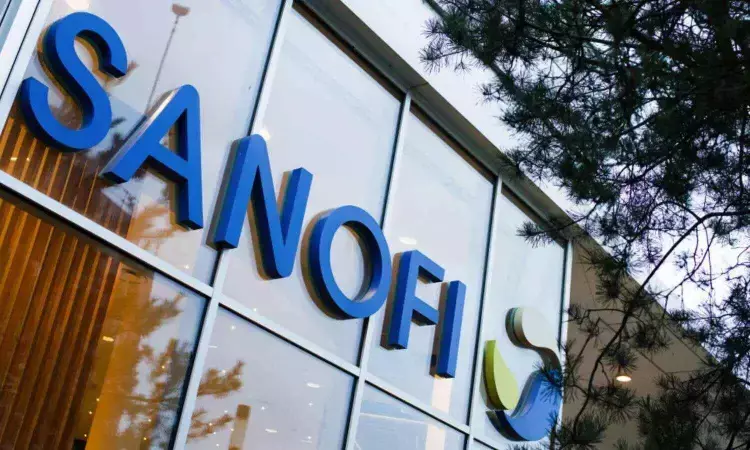- Home
- Medical news & Guidelines
- Anesthesiology
- Cardiology and CTVS
- Critical Care
- Dentistry
- Dermatology
- Diabetes and Endocrinology
- ENT
- Gastroenterology
- Medicine
- Nephrology
- Neurology
- Obstretics-Gynaecology
- Oncology
- Ophthalmology
- Orthopaedics
- Pediatrics-Neonatology
- Psychiatry
- Pulmonology
- Radiology
- Surgery
- Urology
- Laboratory Medicine
- Diet
- Nursing
- Paramedical
- Physiotherapy
- Health news
- Fact Check
- Bone Health Fact Check
- Brain Health Fact Check
- Cancer Related Fact Check
- Child Care Fact Check
- Dental and oral health fact check
- Diabetes and metabolic health fact check
- Diet and Nutrition Fact Check
- Eye and ENT Care Fact Check
- Fitness fact check
- Gut health fact check
- Heart health fact check
- Kidney health fact check
- Medical education fact check
- Men's health fact check
- Respiratory fact check
- Skin and hair care fact check
- Vaccine and Immunization fact check
- Women's health fact check
- AYUSH
- State News
- Andaman and Nicobar Islands
- Andhra Pradesh
- Arunachal Pradesh
- Assam
- Bihar
- Chandigarh
- Chattisgarh
- Dadra and Nagar Haveli
- Daman and Diu
- Delhi
- Goa
- Gujarat
- Haryana
- Himachal Pradesh
- Jammu & Kashmir
- Jharkhand
- Karnataka
- Kerala
- Ladakh
- Lakshadweep
- Madhya Pradesh
- Maharashtra
- Manipur
- Meghalaya
- Mizoram
- Nagaland
- Odisha
- Puducherry
- Punjab
- Rajasthan
- Sikkim
- Tamil Nadu
- Telangana
- Tripura
- Uttar Pradesh
- Uttrakhand
- West Bengal
- Medical Education
- Industry
Sanofi Healthcare India gets CDSCO Panel nod to study Nirsevimab

New Delhi: The Subject Expert Committee (SEC) functional under the Central Drug Standard Control Organisation (CDSCO) has granted approval to the drug major Sanofi Healthcare India to conduct a Phase IV clinical trial of Nirsevimab.
This came after the firm presented the proposal to conduct a Phase IV clinical trial titled “A Phase 4, open-label, single-arm clinical study to describe safety and efficacy outcomes associated with the use of Nirsevimab in neonates and infants born during or entering their first respiratory syncytial virus (RSV) season and in children up to 24 months of age who remain vulnerable to severe RSV disease through their second RSV season” vide Protocol no. VAS00017 version 1.0 dated 30 July 2024.
However, this approval is subject to the condition that the firm increase the sample size to a minimum of 100 evaluable subjects and clinical trial sites should be geographically distributed, including government sites.
Nirsevimab is a long-acting monoclonal antibody indicated for the prevention of respiratory syncytial virus (RSV) lower respiratory tract disease in neonates and infants.
Nirsevimab (MEDI8897) is a recombinant human immunoglobulin G1 kappa (IgG1ĸ) monoclonal antibody used to prevent respiratory syncytial virus (RSV) lower respiratory tract disease in neonates and infants. It binds to the prefusion conformation of the RSV F protein, a glycoprotein involved in the membrane fusion step of the viral entry process, and neutralizes several RSV A and B strains.
RSV is coated with two types of glycoproteins, the attachment glycoprotein (G protein) and the fusion glycoprotein (F protein). Of these two, only the F protein is essential for the entry of the virus into cells lining the respiratory tract, making it a desirable drug target. The RSV F protein is initially in a metastable prefusion conformation and undergoes conformational changes after being triggered by an unknown event. These conformational changes lead to a postfusion conformation, where both viral and host-cell membranes are together.
Nirsevimab binds to a highly conserved epitope of the RSV prefusion F protein, inhibiting the membrane fusion step in the viral entry process. This allows nirsevimab to neutralize various RSV A and B strains and block cell-to-cell fusion.
At the recent SEC meeting for Pulmonary held on 9th January 2025, the expert panel reviewed the proposal to conduct a Phase IV clinical trial titled “A Phase 4, open-label, single-arm clinical study to describe safety and efficacy outcomes associated with the use of Nirsevimab in neonates and infants born during or entering their first respiratory syncytial virus (RSV) season and in children up to 24 months of age who remain vulnerable to severe RSV disease through their second RSV season.”
After detailed deliberation, the committee recommended the approval to conduct the study with the following conditions:
1. The sample size should be increased to a minimum of 100 evaluable subjects.
2. Clinical trial sites should be geographically distributed, including government sites.
Accordingly, the expert panel suggested that the firm should submit the revised protocol to CDSCO for further evaluation.
Also Read: Government Bans Import of Refurbished Medical Devices
Doctor of Pharmacy
Dr. Divya Colin, a Doctor of Pharmacy Graduate with extensive experience in clinical and hospital settings and confidently equipped with diagnostic and therapeutic skills. She also has spread out exposure to Oncology Departments in Mysore Medical College and Research Institute as Oncology Pharmacist. Currently she is building a career in clinical research and clinical data management. She has been a part of Medical Dialogue since January 2022.
Dr Kamal Kant Kohli-MBBS, DTCD- a chest specialist with more than 30 years of practice and a flair for writing clinical articles, Dr Kamal Kant Kohli joined Medical Dialogues as a Chief Editor of Medical News. Besides writing articles, as an editor, he proofreads and verifies all the medical content published on Medical Dialogues including those coming from journals, studies,medical conferences,guidelines etc. Email: drkohli@medicaldialogues.in. Contact no. 011-43720751


